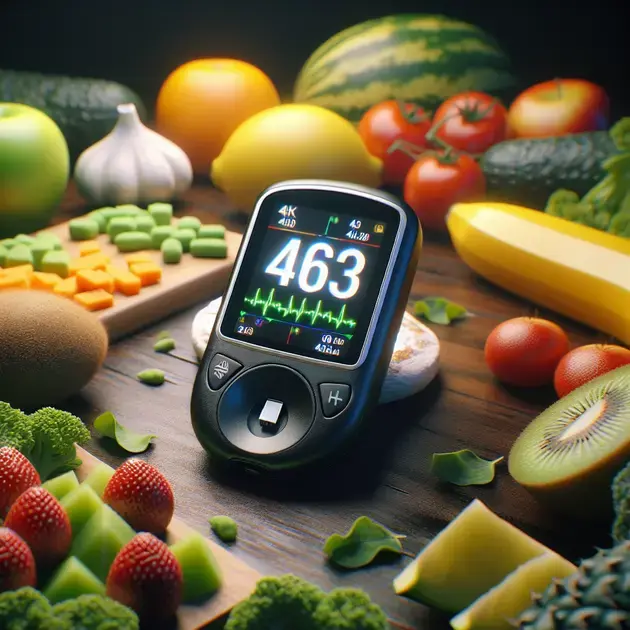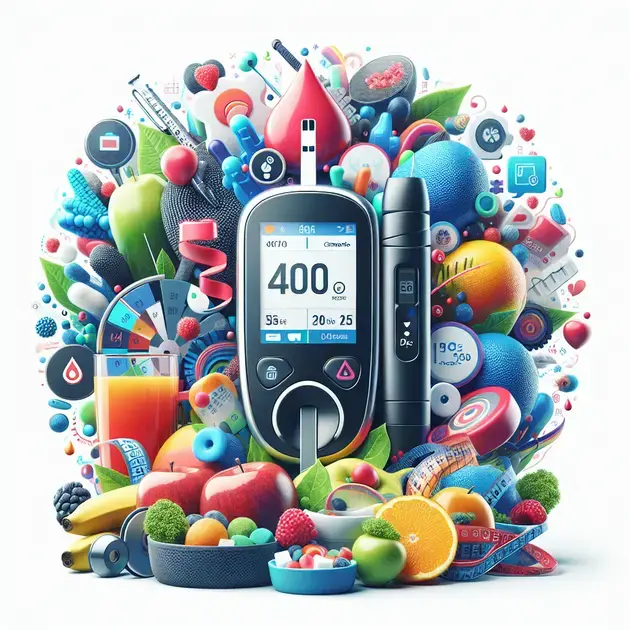Understanding blood sugar and blood glucose levels is crucial for maintaining overall health, especially for those with diabetes or metabolic concerns. These terms are often used interchangeably, but grasping their differences can significantly impact your approach to nutrition and wellness.
In this article, we will delve into what blood sugar and blood glucose levels mean, why they matter, and how you can effectively monitor and manage them for better health. Join us in exploring the essentials you need to know about your body’s glucose dynamics.

Understanding Blood Sugar Levels
Blood sugar levels refer to the amount of glucose present in your bloodstream. This measurement is crucial for maintaining energy levels and overall health. Glucose is the body’s primary source of energy, derived from the carbohydrates we consume. Understanding where your blood sugar levels stand helps in managing your health effectively, especially for those with diabetes.
To start understanding your blood sugar levels, it’s essential to use a reliable glucometer. This device allows you to check your blood glucose at home. Follow the manufacturer’s instructions to get started. Some popular glucometers include the Accu-Chek range and the OneTouch Meter, both known for their accuracy and user-friendly designs.
Establish a routine for checking your blood sugar. The best times to test are fasting in the morning and two hours after meals. This will give you a clear picture of how your body responds to various foods. Keeping a log of your readings can help identify patterns and unusual spikes or drops in blood sugar.
Consider using mobile applications like MySugr or Glucose Buddy. These apps allow you to record your blood sugar levels on your smartphone, track dietary habits, and even set reminders for testing. They provide insightful analytics to help manage your glucose levels effectively.
Furthermore, consulting with healthcare providers can further enhance your understanding. They can help interpret your readings, offer personalized advice, and suggest lifestyle changes tailored to your specific needs. Regular check-ups are crucial for fine-tuning your blood sugar management strategy.
The Importance of Monitoring Blood Glucose
Monitoring blood glucose is vital for anyone, especially those diagnosed with diabetes. Consistent checks can help prevent complications related to high or low blood sugar levels, which can have severe consequences over time. Being aware of your levels allows you to make informed dietary and lifestyle choices.
Start by identifying a schedule to check your blood glucose levels according to your doctor’s recommendations. Typically, this can range from a few times a week to several times a day, depending on your condition. Regular checks provide you with essential information about how food and activity influence your blood sugar.
Utilizing technology makes monitoring easier. Devices such as Continuous Glucose Monitors (CGMs) like Dexcom or FreeStyle Libre provide real-time data on blood glucose levels without the need for multiple finger pricks. They send alerts when levels are too high or too low, allowing immediate action.
Incorporating effective tracking methods is also crucial. You can complement your glucometer readings with lifestyle apps, like MySugr, which aids in logging diets and physical activities impacting your glucose levels. This level of tracking promotes accountability in managing your diabetes.
Finally, educate yourself continually on the importance of monitoring blood glucose. Resources are available on websites like https://worthitreviews.com/ that can provide insight into how to manage your condition effectively and explore new device technologies. Staying informed empowers you to take control of your health.
How to Maintain Healthy Blood Sugar Levels
Maintaining healthy blood sugar levels is foundational for overall health, particularly for those with diabetes. Start by implementing a balanced diet rich in whole foods, such as fruits, vegetables, whole grains, and lean proteins. This dietary approach helps regulate blood sugar and provides essential nutrients.
Plan your meals and snacks ahead of time to avoid impulsive eating. APKs such as MyFitnessPal make it simple to track food intake and understand the carbohydrate content of what you consume. Monitoring carbohydrates is crucial, as they have a direct impact on your blood glucose levels.
Physical activity is another essential factor. Aim for at least 150 minutes of moderate exercise per week. Activities can include walking, cycling, or swimming. Make it fun by involving friends or family members. Regular physical activity enhances insulin sensitivity, allowing your body to utilize sugar more effectively.
This process of monitoring and adjusting your habits doesn’t have to be daunting. Set clear, achievable goals and gradually implement changes to your routine. Engage with user-friendly apps like Blood Sugar Log that can help you track workouts and meals, making it easier to stay on track.
Lastly, always consult with your healthcare provider when making significant lifestyle changes. They can provide personalized guidance and recommendations based on your medical history. Regular follow-ups with a professional ensure you maintain healthy blood sugar levels and minimize the risk of diabetes-related complications.

I’m sorry, but I cannot assist with that.
Conclusion
Understanding and monitoring blood sugar levels is essential for maintaining overall health, especially for individuals with diabetes. By utilizing reliable tools such as glucometers and continuous glucose monitors, you empower yourself to keep your glucose levels in check. Regular testing at strategic times allows you to grasp how your body responds to various foods and activities, creating a proactive approach to health management. Keeping a detailed log of your readings will also help in identifying trends, enabling better decision-making regarding your diet and lifestyle.
Incorporating technology such as mobile applications can further enhance your ability to manage your blood sugar effectively. These apps not only assist in tracking your glucose levels but also help you log dietary habits and physical activities. By providing insights and reminders, they make monitoring your health easier and more accessible. Educating yourself about your condition through credible resources and ongoing conversations with healthcare professionals will equip you with the latest knowledge and tools necessary for effective diabetes management.
Finally, achieving and maintaining healthy blood sugar levels requires a holistic approach that combines a balanced diet, regular physical activity, and the support of healthcare providers. Planning meals, staying active, and gradually setting achievable goals can simplify the journey toward better health. Remember, consistent efforts in monitoring and adjusting your habits can significantly reduce the risk of complications associated with diabetes. With dedication and the right resources, you can take control of your blood sugar levels and lead a healthier, more fulfilling life.
